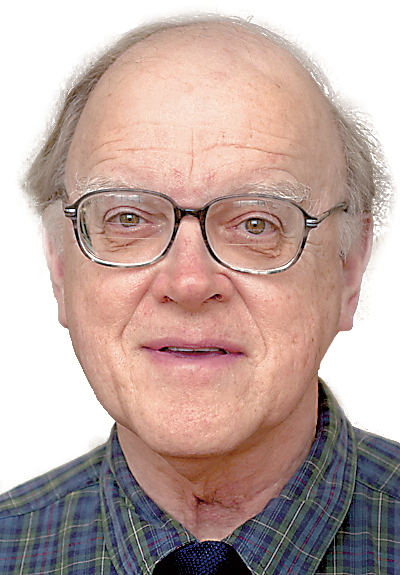We celebrate the accomplishments of new graduates each May and June. What better time to recall special teachers?
Retired hand surgeon Cauley Hayes cherishes the memory of a coach and high school teacher.
"Jack Schiffli coached basketball and taught math at Newnan, Ga., High School," Hayes says. "I was fortunate to be one of several students who met Coach Schifflli in his informal extracurricular math sessions in which he introduced the concepts of higher math, including calculus and differential equations.
"His encouragement led to a deep love of all things mathematical and allowed me to skip basic math at Vanderbilt on the way to graduating with a math major. Along the way, I realized that basketball was not my forte; Jack Schiffli made that decision easy by his positive, supportive mentoring. I can never repay him for his kindness and motivating stimulation in those olden days."
Peter Masic, a retired engineer, recalls: "Sister Mary John was my math teacher at Father Ryan Catholic High School in Nashville. My mother, Serbian stepfather, sister and I immigrated into the U.S. in November 1955. We arrived in New York one day before my 14th birthday.
"We settled in Nashville, and I entered Father Ryan Catholic High School as a ninth-grader. My English was very poor, but somehow, with some concessions from the faculty, I was able to manage and soon became pretty fluent in the language.
"Sister Mary John was my math teacher. She tested me for my math skills and found me to be advanced for my grade level. She held special sessions for a few of her best students, including me, to prepare us for college. My stepfather wanted me to go to work as soon as possible to bring home income to raise the family's standard of living. He wanted me to go to a two-year vocational school to learn radio and TV repair.
"Upon hearing this, Sister Mary John went to the principal and made the case that going to a vocational school would underutilize my math and science capabilities, and that I should rightfully attend a four-year college. They called in my mother and convinced her accordingly. As I result, I obtained an electrical engineering degree from Vanderbilt University and went on to a fulfilling 40-year career at TVA in Chattanooga."
Maeghan Jones, president of the Community Foundation of Greater Chattanooga, cites Mrs. Houser, "a special teacher from elementary school."
"My second-grade reading teacher changed my life. She challenged me to read 100 books that year. She kept a folder where she recorded each book I read, numbering them as we went through the school year. The prize for students who met their goals was a picnic at her house at the end of the year, and I proudly attended. She sparked a passion for reading that continues to this day; a habit that opened my eyes to new emotions, people, places, and ideas."
Computer science professor Rance Cleaveland honors two special teachers in Chattanooga.
"Houston Patterson was my geometry teacher in ninth grade. He loved the subject, and his passion for it was highly infectious. It's hard to hold the attention of adolescent boys in the best of times and math, with its reputation for abstraction and rigor, can be particularly troubling in this regard.
"Mr. Patterson's real gift was to let us see inside geometric arguments and to see their beauty and simplicity once you understood them. Oftentimes the beauty was tactile also; he was capable of drawing superb diagrams (2- and 3-dimensional) on the board, and using them to sharpen our intuitions and see, in a non-verbal way, how mathematical reasoning could be conducted."
Bob Bailey was a scholar in the best sense of the word. His special expertise lay in the history of the Civil War, but he was also quite learned in all aspects of American history. I took American history from him in the 11th grade and trimester-long course in the Civil War and Progressivism in the 12th grade. His classes were my first experience of a Socratic style of teaching; he would ask questions about the topic of the day, and wait for us to respond.
He expected you to come to class prepared and to have done the reading, but I recall this not being a problem because it was so engaging to attend class and discuss the larger issues underpinning our reading. He treated his students respectfully, and we did our best to live up to his trust in us."
Let's hear it for graduates and their teachers.
Contact Clif Cleaveland at ccleaveland@timesfreepress.com.

